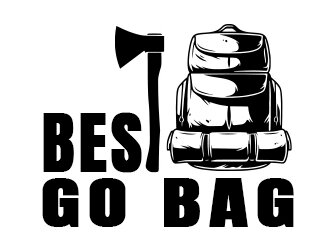I’m going to play a game this summer. Every time I hear a weather forecaster use one of the words in the next paragraph, I’m going to take a drink of water, juice, or a sports beverage.
Here are the words: hot, heat, broiling, blazing, scorching, sizzling, sweltering, blistering, and oppressive. As well as phrases such as “fry an egg on the sidewalk” and “like an oven.”
Considering how hot it’s going to be in America this summer – and how many times we’ll hear about the heat from weather folks – I should be able to stay hydrated.
Actually, the extreme heat has already made its entrance. Just ask Texans. A headline from USA Today late last month read: “Oppressive and Unbearable Heat Wave Scorches Texas, With No End in Sight.” Temperatures reached 114° Fahrenheit in San Angelo and 113° in Del Rio.
El Niño Swoops in Early
Why is this happening? For one thing, temperatures continue to rise around much of the world. Each decade over the past 50 years has been hotter than the previous one worldwide.
For another, the El Niño weather pattern just took over for La Niña, earlier in the year than normal. El Niño conditions include above-average sea-surface temperatures resulting in higher-than-usual warmth.
The previous “super El Niño” (2015-2016) produced the hottest year on record. Excessive heat is the number one weather-related killer. According to the Centers for Disease Control and Prevention, an average of 658 Americans die every year from extreme heat.
Many of those deaths come from widespread blackouts due to strain on the electric grid. No air conditioning and food spoiling is a rough combination. Especially for the elderly.
Heat-Related Health Issues
Extreme heat can lead to a number of health issues. Including heat rash, heat cramps, dehydration, and heat stroke. Heat rash occurs when sweat is trapped in the skin. Symptoms range from small blisters to deep, inflamed lumps. Some forms are itchy. It usually fades when the skin cools.
Heat cramps are more serious. These involuntary muscle spasms are caused by fluid and electrolyte loss. Muscles most often affected are calves and arms. Also, the abdominal wall and back.
Another major problem with excessive heat is dehydration. This occurs when the body does not contain enough water and other fluids to carry out normal functions.
Prolonged exposure to high temps can cause the body to overheat. If left untreated, heat stroke can result in damage to organs. The longer treatment is delayed, the more serious the situation.
Ways to Chill in a Blackout
Here are some ways to stay cool during a power outage from safeelectricity.org and other sources.
- First, make sure your air conditioner is in good shape. Schedule an appointment with your AC maintenance company to confirm it’s ready for the summer heat.
- Remove leaves and other debris from around your AC unit.
- Dress in loose, lightweight clothing. Organic fibers like cotton and linen are best. Lighter-colored clothing will help reflect light and heat.
- Stay on the coolest, lowest level of your home as much as possible. Close off hotter rooms. Place a towel at the bottom of the door to keep warm air from seeping in.
- Use natural ventilation to cool homes & purchase battery-powered fans. (You can check out our wireless, rechargeable fan & cooling mister here.)
- Wait until evening to use a generator to power heat-generating appliances.
- Avoid physical labor. Reserve those activities for cooler portions of the day.
- Drink plenty of water and avoid heavy meals, caffeinated beverages, and alcohol. If you’re perspiring, drink fluids containing electrolytes.
- Keep refrigerator & freezer doors closed. If an outage lasts longer than 4 hours, remove meat, milk, and other dairy products from the fridge and pack in a cooler with ice.
- Use safe alternative food preparations, such as an outdoor barbeque grill.
- Keep a first-aid kit in your home and car. Including scissors, tweezers, safety pins, aspirin, eyewash, and rubbing alcohol or hydrogen peroxide.
- Close drapes and blinds on the sunny side of your residence.
- If the temperature is cooler outdoors than indoors overnight, open windows to let cooler air in. Hang a damp towel against open windows. Air will cool as it passes through the damp fabric.
- Take a cool shower at least once a day.
- Take your family and pets to a basement or other cool location. Also consider going to an air-conditioned public place during the hotter daytime hours.
- Check on friends and relatives – especially children, seniors, and those with medical conditions or disabilities.
And there you have it. Some of my favorite tricks to cool down and stay safe during the hottest time of the year.

